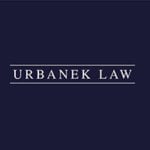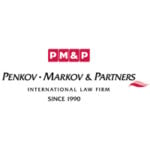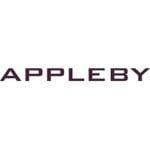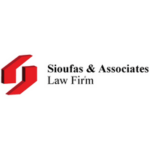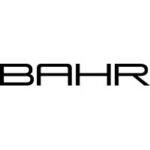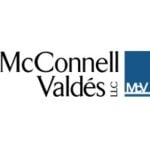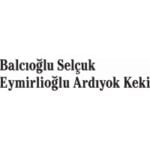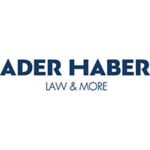-
Overview
Real estate in Denmark is extensively regulated by legislation, with interpretive influences from case law.
The Danish real estate market is characterized by a high degree of digitization. The entire country is divided into individual land parcels, referred to as “matrikler“, all of which are registered in a public, digital cadastral register. Most information about real estate is accessible online. Registration of rights over real estate in the Land Registry (Tingbogen), as well as the conduct of civil court proceedings, takes place digitally.
From an international perspective, the Danish real estate legal system is relatively well-organized, predictable, and transparent, providing a stable legal platform for investors.
-
What is the main legislation relating to real estate ownership?
Ownership of real estate in Denmark is primarily governed by the Danish Land Registration Act (Tinglysningsloven), which establishes rules for the registration of rights over real estate, including ownership, easements, and mortgage rights etc.
Other key legislation includes the Building Act (Byggeloven) and its associated Building Regulations (Bygningsreglementet 2018), which regulate the construction, renovation, and demolition of buildings, as well as the Planning Act (Planloven), including municipal and local plans, which regulate land use and construction on real estate.
-
Have any significant new laws which materially impact real estate investors and lenders come into force in the past year or are there any major anticipated new laws which are expected to materially impact them in the near future?
The Danish Parliament has passed a bill containing measures to improve the conditions for generational change for rental properties and rental property companies. It is now possible to transfer properties with tax succession, thereby deferring capital gains tax and facilitating the generational change without straining liquidity. Tax succession implies that the recipient of the property or property company assumes the transferor’s tax position, and capital gains tax is deferred until the recipient sells the property.
Since 2017, the Danish government has been implementing a new property valuation and taxation system, expected to be fully phased in by 2026 at the earliest. The objective of the new system is to create a more accurate and transparent basis for real estate taxation. The system aims to ensure that property valuations closely reflect actual market values.
As of January 1, 2025 a cap on increases in the coverage tax (Dækningsafgift) has been passed. Under the new valuation system, commercial properties in highly sought-after areas of Copenhagen, Aarhus, Odense, and Aalborg are significantly impacted by higher coverage taxes. The new regulations ensure that the annual increase in the coverage tax cannot exceed 10% of the new fully phased-in rate, allowing for a gradual adjustment over time.
As a result of the EU’s 6th Anti-Money Laundering Directive, a new law has been passed restricting access to information about companies’ beneficial owners. From September 1, 2025, only competent authorities, obligated entities, and persons and companies with a legitimate interest have access to information about a company’s beneficial owners.
-
How is ownership of real estate proved and are ownership records available for public inspection?
Ownership of real estate in Denmark is documented through registration in the Land Register (Tingbogen), a publicly accessible register of rights to real estate. The land registration serves as legal proof of ownership and protects against claims from previous owners and conflicting rights established subsequently.
The entire land registration process is conducted digitally, enabling swift registration of ownership. Foreign acquirers of real estate without Danish MitID must provide a written power of attorney for the land registration. This power of attorney is typically granted to the acquirer’s attorney or the certifying attorney.
The Land Register is administered by the Land Registration Court (Tinglysningsretten), and contains information on ownership, mortgages, easements, and other encumbrances.
-
Are there any restrictions on who can own real estate, including ownership by any foreign entities?
In order for companies, associations, foundations, and individuals, etc., to acquire real estate in Denmark, a residency requirement applies, which include:
- That a company, association or fund etc. must be domiciled in Denmark at the time of purchase, as there are no specific residency requirements for shareholders, board members, or directors.
- That individuals must either have permanent residence in Denmark at the time of purchase or must have previously resided permanent in Denmark for a total of 5 years. The prior residency period does not need to be continuous.
The residency requirement applies to all types of properties in Denmark. However, it should be clarified that these rules do not apply to the acquisition of property companies.
If the residency requirement is not met, permission for the purchase of real estate in Denmark must generally be obtained from the Ministry of Justice (Justitsministeriet).
Special rules apply to EU and EEA companies and citizens. Under certain conditions, EU and EEA companies and citizens can purchase real estate in Denmark without permission from the Minister of Justice.
-
What types of proprietary interests in real estate can be created?
Danish legislation recognizes several types of proprietary interests in real estate that can be created.
The most prominent types of proprietary interests include:- Full ownership, which grants an exclusive right to control and dispose of the property in all respects.
- Co-ownership, where two or more individuals or legal entities hold an undivided share of the property and jointly share ownership rights.
- Ownership of a condominium (ejerlejlighed), which entails full ownership of a specific apartment combined with co-ownership of the building’s shared areas. This ownership is accompanied by mandatory membership in the property’s owners’ association, which manages the shared areas as well as common income and expenses.
- Ownership of a cooperative housing unit, which involves ownership of a share in a cooperative housing association. This share grants exclusive use of a specific dwelling and co-ownership of the cooperative’s properties and assets.
- Lease agreements, which grant temporary usage rights to buildings in exchange for rent payments.
- Usage agreements, which provide the right to use the property within the agreed scope, such as for constructing buildings on leased land or cultivating the soil. However, rights of use over part of a property must be able to be terminated with a maximum of 30 years’ notice.
-
Is ownership of real estate and the buildings on it separate?
Ownership of real estate and the buildings on it are generally inseparable. The owner of a property owns both the land, and any buildings erected on it. However, it is possible to establish buildings on leased land. A building on leased land refers to a building owned by someone other than the owner of the land on which it is located.
There must never have been overlapping ownership between the land and the building. If at any point there has been shared ownership, the building is absorbed and becomes an integral part of the property. Once this occurs, the ownership of the land and the building can never be separated again.
A building on leased land can be sold and mortgaged, etc., like other property types.
There is no legal requirement for such a building to be registered in the Land Register. However, in many cases, it may be advantageous for the building owner to have the building registered. This is a prerequisite for securing mortgages. Additionally, registration allows the owner to officially record ownership (title) of the building, ensuring protection against third-party claims.
-
What are common ownership structures for ownership of commercial real estate?
Commercial real estate is typically owned either directly by individuals or indirectly through one or more limited liability companies (LLCs). The choice of ownership structure depends on factors such as the size of the real estate investment, the number of owners, and tax considerations.
There is an increasing trend toward ownership through limited liability companies. This is primarily because the transfer of shares does not trigger capital gains tax on real estate.
-
What is the usual legal due diligence process that is undertaken when acquiring commercial real estate?
Typically, either a Letter of Intent or a SPA or an APA is executed, conditioned by the buyer’s completion of satisfactory due diligence.
The buyer provides a request list outlining the relevant materials they request to review. Subsequently, the seller sets up a virtual data room where the requested materials are made available to the buyer and their advisors. The data room typically includes documents related to general property matters, ownership and encumbrances, planning regulations, environmental issues, tax, VAT, customs, construction law and technical conditions, tenancy agreements, homeowners’ and property owners’ association matters, insurance policies, employment matters, administration and service agreements, general compliance with laws, litigation, and other disputes.
Based on the disclosed materials, the buyer’s advisors evaluate the specific circumstances of the property or company, focusing on the risks that the buyer should be aware of prior to acquisition. Additionally, the buyer and their advisors ask follow-up or clarifying questions and request supplementary documentation as needed.
The advisors’ assessment of the property or real estate company is reported to the buyer in an agreed format, enabling the buyer to review key findings and incorporate them into negotiations with the seller.
The buyer generally cannot make claims against the seller for matters that have been fully disclosed and documented in the data room.
-
What legal issues (if any) are outside the scope of the usual legal due diligence process on an acquisition of real estate?
Thanks to publicly accessible and reliable information, there are typically no legal issues that cannot be addressed through standard legal due diligence.
The exception would be unregistered obligations that have not been disclosed by the seller. Such risks are usually managed through specific warranties in the SPA.
-
What is the usual process for transfer of real estate, and when does liability pass to the buyer?
Larger real estate transactions are often facilitated through structured bidding auction processes led by professional brokerage firms or corporate finance houses, while a significant number of smaller transactions are conducted through direct contacts between the seller and the buyer.
Negotiations typically begin with the parties entering into a Letter of Intent or the buyer submitting a conditional purchase offer to establish the overall framework for the transaction. The buyer is often granted exclusivity to acquire the property within a defined period.
A detailed legal, technical, and financial due diligence is then carried out. Concurrently with the due diligence process, the terms of the SPA or APA are negotiated and drafted. Negotiations and drafting are conducted in Danish or English, depending on the needs of the parties.
The final completion of the transaction may be subject to various conditions, such as approval from the parties’ boards of directors, obtaining sufficient buyer financing, securing the necessary building permits, achieving full occupancy, etc.
After the SPA or APA is signed, the parties, in the case of an asset transfer, must sign a digital transfer deed, which is then submitted for registration in the Land Register. In the case of a share transfer, closing must occur simultaneously or after signing, during which the purchase price and ownership of the property company are exchanged. After closing, the usual digital registration of various company changes must be made in the Public Business Register (CVR).
-
Is it common for real estate transfers to be effected by way of share transfer as well as asset transfer?
Both asset transfers and share transfers are common. However, share transfers are increasingly preferred, as there are often both capital gains tax advantages and registration fee benefits associated with transferring the property company rather than the underlying property itself.
It is also not uncommon for a transfer to involve an entire corporate structure consisting of a holding company and a property company, with the aim of avoiding the Danish legal rules on mandatory offer obligations, whereby residential tenants must be offered the opportunity to acquire the property on the same terms through a tenant-established cooperative within a 10-week deadline.
-
On the sale of freehold interests in land does the benefit of any occupational leases and income derived from such lettings automatically transfer to the buyer?
Rights of use of any kind, including commercial leases, are considered rights that are attached to the property itself and automatically transfer from the seller to the buyer on the takeover date without the need for a separate agreement between the parties.
In an asset transfer of real estate, it is typically agreed that the seller will reimburse the buyer for any deposited amounts and prepaid rent, etc., as these amounts are not automatically transferred to the buyer.
After the takeover date, tenants must direct their claims to the buyer regardless of whether the claims relate to the seller’s period of ownership.
To avoid liability for the seller’s period of ownership, it is typically agreed between the parties that the seller is liable to the buyer for any claims related to the seller’s period of ownership, meaning the buyer has a right of recourse against the seller if the buyer is held liable for such claims.
-
What common rights, interests and burdens can be created or attach over real estate and how are these protected?
Various types of rights and encumbrances can be created or attached over real estate. These rights and encumbrances can be based on agreements or legislation.
The most common rights and encumbrances are:
- Ownership rights, which grant full authority over the property, including the right to sell, lease, build, and make alterations to the property, subject to applicable laws and any registered rights.
- Easements, which create specific obligations or restrictions on the property. These may include rights of way, building easements, utility and supply easements, nature easements, pre-emption rights, and homeowners’ and property owners’ associations.
- Rights of use, which grant a third party the right to use the property and/or buildings on the property, with or without compensation. Rights of use cannot be established for a part of a property for more than 30 years.
- Mortgage rights, where the property is used as security for a loan.
- Expropriation, which allows authorities to forcibly create rights over real estate in exchange for compensation, typically for large public infrastructure projects.
- Prescription, whereby a third party acquires ownership or other property rights over another property based on long-term (minimum 20 years, but up to around 40-50 years) use.
- Rights or encumbrances under legislation, which typically limit the use of the property, such as municipal and local plans adopted under the Planning Act.
As a general rule, rights over real estate must be registered to be valid against subsequent agreements related to the property and against legal enforcement actions.
Exceptions to this rule are found in Section 17(1) of the Danish Rent Act and Section 6(1) of the Commercial Lease Act, which state that tenants’ rights under these acts are valid against all parties without registration. The same applies to agreements regarding prepayment of rent, deposits, or similar amounts, provided these amounts do not exceed half a year’s rent.
Furthermore, rights and restrictions imposed on a property by authorities generally do not require registration. For example, local plans are valid against all parties without registration.
-
Are split legal and beneficial ownership of real estate (i.e. trust structures) recognised?
No, split of legal and beneficial ownership of real estate is not recognized under Danish law.
-
Is public disclosure of the ultimate beneficial owners of real estate required?
The Land Register contains information about the legal owner of a property, but it does not include details about the ultimate owners, i.e. the individuals who have final control over the property.
Although the Land Register does not provide information about ultimate owners, there are other regulations in Denmark regarding the disclosure of the beneficial owners of legal entities that own real estate.
Legal entities are required to report information about their beneficial owners to the Danish Business Authority (Erhvervsstyrelsen). The Business Authority stores this information in a register where information about beneficial owners can be accessed if you are 1) a competent authority, 2) an obligated entity, or 3) a person with a legitimate interest in the information.
-
What are the main taxes associated with real estate ownership and transfer of real estate?
Owners of real estate are continuously charged property taxes, including land tax, contribution fees, and property value tax.
- Land tax is a tax on the value of the land, as determined by the public property assessment, which is paid to the municipality. The land tax rate varies by municipality, ranging from approximately 0.3% to 1.8%.
- Coverage tax is a municipal tax levied on commercial properties as a contribution toward covering the expenses that commercial properties impose on the municipality. Coverage Tax are collected in 33 out of 98 municipalities across the country. The fee is calculated based on the land value as assessed in the public property assessment. The rate varies by municipality, ranging from approximately 0.3% to 1.31%.
- Property value tax is a tax paid on properties where the owner resides or has control over the property. The property value tax is calculated based on the property value as assessed in the public property assessment. The property value is set based on the total value of the property, including buildings, as it stands.
The new property valuation and taxation system, currently being implemented, will affect ongoing taxes. In particular, well-located properties in Copenhagen, Aarhus, Odense, and Aalborg will face higher property valuations and potentially higher taxes.
In addition to ongoing taxes, the transfer of real estate also triggers capital gains tax and a registration fee.
Capital gains from the sale of real estate are taxed as capital income. The gains of companies from the sale of real estate are taxed as regular corporate income at a rate of 22%.
Upon registration of a transfer of ownership, a fixed basic fee of DKK 1,850 is paid, along with a variable fee of 0.6% of the transfer amount or the highest of the transfer amount and the public property value.
Finally, when selling building plots, there is a 25% VAT on the purchase price. -
What are common terms of commercial leases and are there regulatory controls on the terms of leases?
In contrast to residential tenancy law, Danish commercial tenancy law is largely characterized by freedom of contract and only a few mandatory rules. If nothing has been agreed, the rules of the Commercial Lease Act apply.
In practice, the following mandatory rules are most important:
- Specification requirements: The lease agreement must specify which types of expenses the tenant must pay in addition to the basic rent. The specification must also state an amount of the individual expense, if known. If the lease agreement does not contain this information, the landlord cannot charge for the expense(s) in question, unless the landlord can prove that the missing information has not led to a deterioration in the tenant’s position.
- Consumption expenses and accounts: If the tenant pays an advance amount to the landlord for the consumption expenses that are incumbent on the lease, the landlord must send a consumption account once a year. The consumption accounts must state the tenant’s share of the total consumption expenses.
- Termination: The landlord can only terminate the tenant in the cases that are directly stated in the Commercial Lease Act. A notice of termination is only valid if it is in writing, contains the reason for termination and provides guidance on the tenant’s right to object.
- Business protection: A tenant who carries on a business whose continued existence in the property is of significant importance and value to the business is considered to be business protected. The tenant cannot agree to opt out of business protection. If a tenancy is covered by business protection, some of the otherwise declaratory rules cannot be departed from to the detriment of the tenant, including the right to terminate and the right to compensation in the event of termination.
A number of terms often occur in commercial leases. The range of the most common are the following:
- Rent adjustment according to net price index: The basic rent is adjusted once a year based on the increase in the net price index. A minimum and maximum percentage are often agreed for the annual adjustment.
- Non-termination period: The landlord and/or tenant may only terminate the lease agreement with the agreed notice period after a certain number of years.
- Maintenance: According to the Commercial Lease Act, the starting point is that the landlord has the maintenance obligation for the lease. Most often, this provision is deviated from, so that the tenant takes over the interior maintenance obligation.
- Compensation in the event of termination: Unless otherwise agreed, the tenant may, in the event of the landlord’s termination, claim compensation for the loss suffered by the tenant as a result of the termination. The compensation includes, among other things, the costs of the tenant’s move, depreciation of the tenant’s furniture and operating losses. It is often agreed in commercial tenancies that the tenant is not entitled to compensation in the event of the landlord’s termination.
-
What remedies are commonly available for landlords in the event of a tenant breach of a commercial lease?
If the tenant is in breach of the lease, the landlord can terminate the tenant and claim compensation for the loss suffered by the landlord as a result of the tenant’s default. The most commonly used reason for termination is the tenant’s payment default.
The landlord’s termination must be in writing, the reason for the termination must be stated, and the tenant must be informed of his/her possibilities to object.
If the tenant does not object, but at the same time does not vacate the tenancy, the landlord can ask the Danish enforcement court (fogedretten) for help in getting into possession of the tenancy.
If the tenant objects to the termination, the landlord must bring the case before the Danish courts, which must decide whether the termination is justified.
-
How are use, planning and zoning restrictions on real estate regulated?
The Planning Act (Planloven) forms the basis for the public authorities’ management and limitation of future land use. The fundamental idea of the act is that the public planning and zoning restrictions of the future land use must be based on an overall assessment of the various public and private interests. Such interests include creating and conserving valuable buildings, settlements, urban environments, and landscapes. Furthermore, The Planning Act aims to involve the public in the planning process.
Pursuant to The Planning Act, the municipalities regularly adopt municipal plans and local plans, which regulate the use, planning and zoning of specific areas.
-
Who can be liable for environmental contamination on real estate?
Danish environmental law is based on the “polluter pays” principle. Therefore, liability for environmental contamination on real estate in Denmark will normally attach to the polluter. The polluter is liable in relation to the public authorities to investigate possible pollution originating from the polluter’s activities and to take appropriate actions to remediate such pollution.
However, in certain circumstances the owner or occupier of land, which has been contaminated, can also be held liable. This may be the cases where the pollution occurred during the owner’s time and the owner was aware of, or should have been aware of, the activities that caused the pollution, or the owner has accepted responsibility for pollution in connection with the purchase of the property.
In some cases, the authorities take responsibility, especially in connection with historical pollution where the polluter no longer exists, or where it is not possible to place the responsibility. This is typically done through regional pollution cleanup programs.
-
Are buildings legally required to have their energy performance assessed and in what (if any) situations do minimum energy performance levels need to be met?
There are a large number of requirements for energy labeling of buildings.
The energy label is a report prepared by a certified energy labeling company, which includes the building’s energy performance. An energy label is valid for 10 years at a time.
An energy label is required in the event of a sale or rental, in new construction and public buildings. However, there are a number of building categories that are exempt, including for example buildings sold for demolition, detached buildings with a total area of less than 60 m2, churches, agricultural production buildings, holiday homes and listed buildings, etc.
In cases where the Danish Building Regulations (now BR18) apply, requirements are set for the energy performance of buildings. The regulations apply, for example, to the construction of new buildings, changes in the use of a building, extensions and, in certain cases, alterations.
-
Is expropriation of real estate possible?
Section 73 of the Constitution (Grundloven) states that property rights are inviolable and that no one may be compelled to surrender their property except where required for the public good. Such expropriation may only occur pursuant to law and against full compensation. Strict procedures govern the execution of an expropriation process, which is therefore only used when absolutely necessary to achieve an important societal objective that cannot be attained by other means.
Examples of significant public interests that may warrant expropriation include the construction of public infrastructure, the expansion or establishment of existing public institutions, or the protection of nature and the environment.
-
Is it possible to create mortgages over real estate and how are these protected and enforced?
It is possible to get a mortgage deed on a property as security for the payment of the mortgage loan.
The mortgage deed is protected in the form of a registration that takes place through notification of the mortgage to the Land Registration Court. Thus, the mortgage bank’s rights over the property are registered publicly.
If repayments on the mortgage loan are defaulted, the mortgagee must have the mortgage deed seized via the Danish enforcement court (fogedretten). After the mortgage attachment has been made, the mortgagee can request the property sold at a forced auction, which is also carried out by the Danish enforcement court.
-
Are there material registration costs associated with the creation of mortgages over real estate?
In connection with the registration of a mortgage deed, a registration fee must be paid. The registration fee consists of a fixed fee of DKK 1,825 and a variable fee of 1.45% of the loan amount.
In 2026, the variable fee will change to 1.25% of the loan amount. There is no change to the fixed fee.
-
Is it possible to create a trust structure for mortgage security over real estate?
There is no Danish legal equivalent to a trust in the Anglo-Saxon sense of the word.
Denmark: Real Estate
This country-specific Q&A provides an overview of Real Estate laws and regulations applicable in Denmark.
-
Overview
-
What is the main legislation relating to real estate ownership?
-
Have any significant new laws which materially impact real estate investors and lenders come into force in the past year or are there any major anticipated new laws which are expected to materially impact them in the near future?
-
How is ownership of real estate proved and are ownership records available for public inspection?
-
Are there any restrictions on who can own real estate, including ownership by any foreign entities?
-
What types of proprietary interests in real estate can be created?
-
Is ownership of real estate and the buildings on it separate?
-
What are common ownership structures for ownership of commercial real estate?
-
What is the usual legal due diligence process that is undertaken when acquiring commercial real estate?
-
What legal issues (if any) are outside the scope of the usual legal due diligence process on an acquisition of real estate?
-
What is the usual process for transfer of real estate, and when does liability pass to the buyer?
-
Is it common for real estate transfers to be effected by way of share transfer as well as asset transfer?
-
On the sale of freehold interests in land does the benefit of any occupational leases and income derived from such lettings automatically transfer to the buyer?
-
What common rights, interests and burdens can be created or attach over real estate and how are these protected?
-
Are split legal and beneficial ownership of real estate (i.e. trust structures) recognised?
-
Is public disclosure of the ultimate beneficial owners of real estate required?
-
What are the main taxes associated with real estate ownership and transfer of real estate?
-
What are common terms of commercial leases and are there regulatory controls on the terms of leases?
-
What remedies are commonly available for landlords in the event of a tenant breach of a commercial lease?
-
How are use, planning and zoning restrictions on real estate regulated?
-
Who can be liable for environmental contamination on real estate?
-
Are buildings legally required to have their energy performance assessed and in what (if any) situations do minimum energy performance levels need to be met?
-
Is expropriation of real estate possible?
-
Is it possible to create mortgages over real estate and how are these protected and enforced?
-
Are there material registration costs associated with the creation of mortgages over real estate?
-
Is it possible to create a trust structure for mortgage security over real estate?
